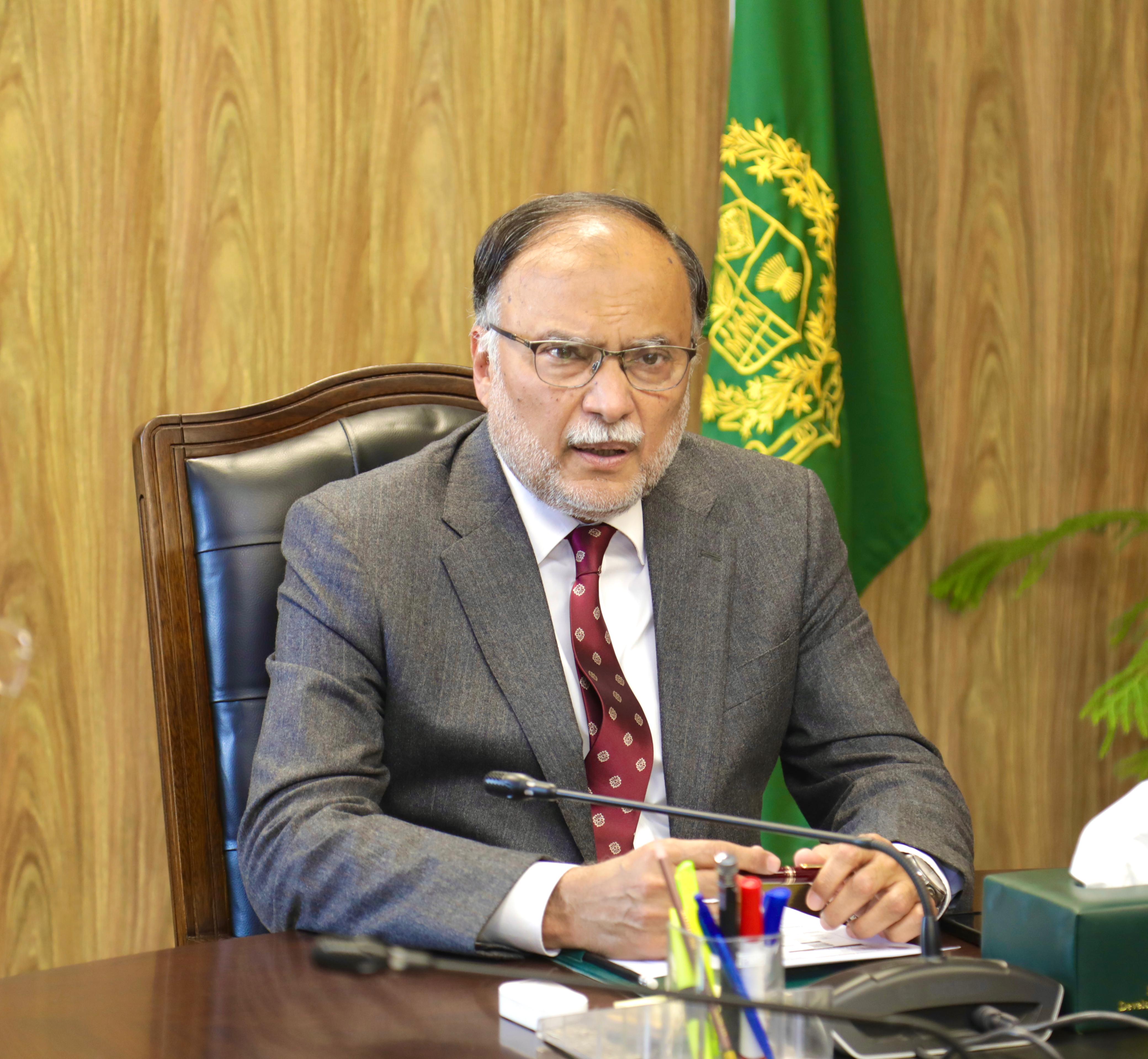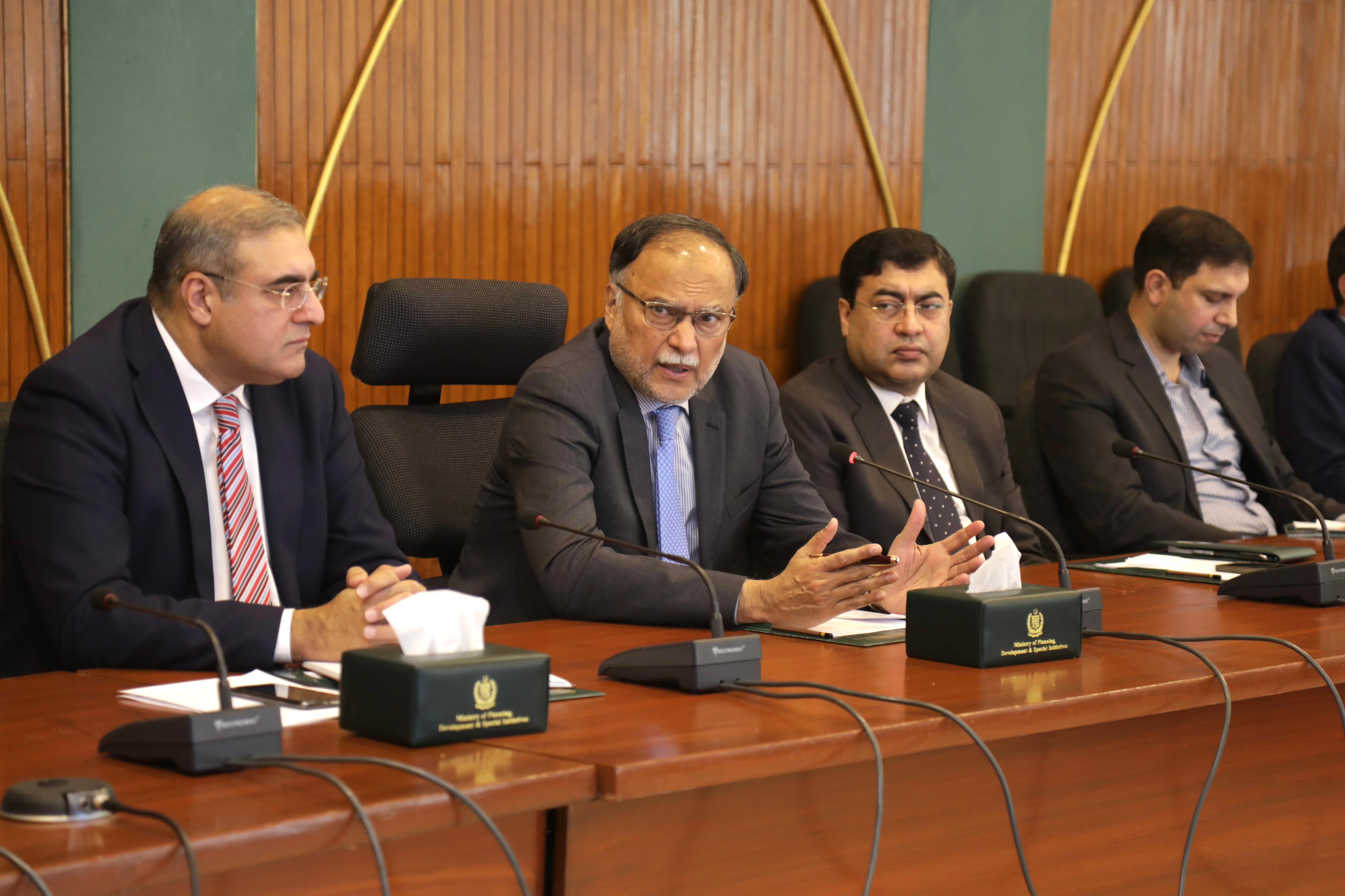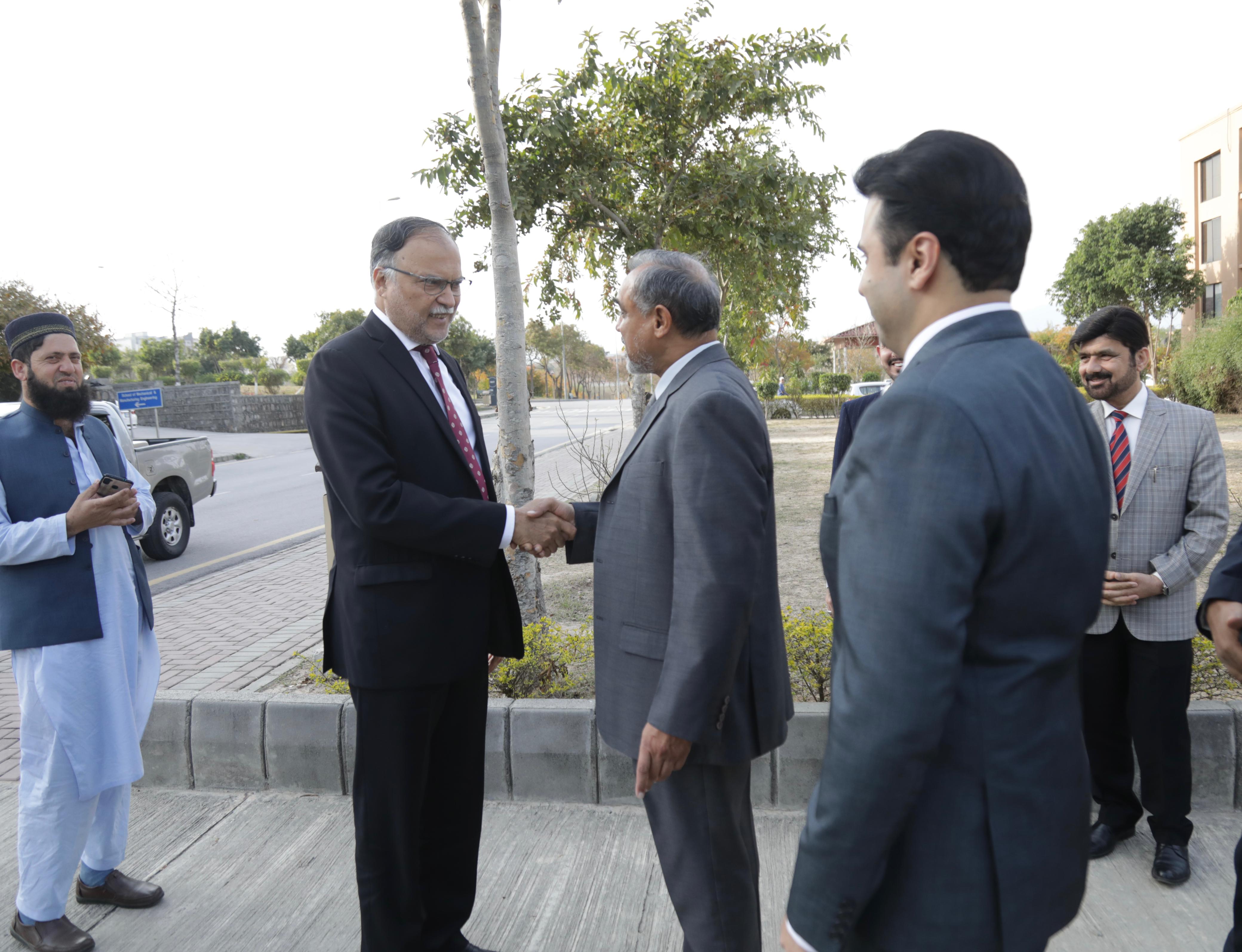
Development & Special Initiatives
Press Release/Tickers

The CDWP meeting presided over by Deputy Chairman ...
Published : 15 March 2024
The CDWP meeting presided over by Deputy Chairman Planning Commission ...
وزارت منصوبہ بندی کا 5 ایز ف�...
Published : 14 March 2024
وفاقی وزیر برائے منصوبہ بندی ترقی و خص�...
Ahsan Iqbal reviews progress of National Centers o...
Published : 13 March 2024
The newly-appointed Federal Minister for Planning Development & Specia...
A NHRD 2020 webinar was organized by UNDP Pakistan covering the subject “The Pakistan’s Inequality Debate”.
Dated : 13 July 2021
A NHRD 2020 webinar was organized by UNDP Pakistan covering the subject “The Pakistan’s Inequality Debate”. The Planning Minister Asad Umar was the Guest of Honor whilst the panelist included Mr. Knut Ostby, Resident Representative UNDP Pakistan, Dr. Hafeez Pasha, Dr. Faisal Bari, Ms. Ammara Durani, Ms. Mary James Gill and Dr. Aasim Sajjad Akhtar.
Highlighting the government commitment to social protection and inequality alleviation, the Federal Minister Asad Umar said that the government has adopted people centric growth strategy strengthening productive sectors and sectors with high employment potential. Ehsaas Program, Health Insurance Card and Kamyab Jawan programs have been started under the policy which are contributing in uplifting the marginalized families.
He said that agriculture is the largest employability potential sector and government has taken significant measures in correcting price imbalance, which resulted in substantial increase in farm income. The Planning Minister highlighted that during last three years, the crop sector’s GNP increase is about five times higher than the accumulative growth in the previous 5 years.
The Minister pointed out that Government has its special emphasis on construction sector which is another larger employer in the urban part of the country. In addition, a focused textile incentive package has been put in place by the government and subsequently Pakistani textile exports are expanding.
Minister Asad Umar noted that in today’s world, digital commerce has a significant impact on addressing the challenges of vertical inequality as well as the horizontal. Due to the policies of the government, Pakistan’s significant number of lower middle class educated youth has gained employment through digitally selling their services. As a result, in the first 10 months of FY 2020-2021, 46% increase has been witnessed in IT sector exports from Pakistan demonstrating correct policy direction of the government.
The Planning Minister Asad Umar emphasized that Government is ensuring to benefit all the people in the quintiles and not only the top ones. The Budget 2021-22 is built around the theme to benefit the marginalized section of the society. These policies are empowering the people at the lower end of economic income spectrum.
Addressing horizontal inequality, the Planning Minister Asad Umar stated that the incumbent Government has adopted an integrated development strategy for the entire country. A special development Package for 9 least developed districts of South Balochistan has been prepared where special emphasis has been laid on providing internet connectivity in districts like Awaran, Turbat, Khuzdar. The Minister said that the development outcome has to be directly measured by the welfare it creates for the citizens.
The Planning Mnister also highlighted that during COVID-19, the government has ensured to address the concerns of people with marginalized income. The principles of equality have been practiced in true spirit during the process of vaccination against CVOID19. He concluded that by focusing the current policies taken by the Government, it is hoped that in the long run growth and reduction in inequality will be positively correlated
The panelists appreciated the efforts of the Government for reducing economic disparities in the society especially by formulating packages for least developed districts of Baluchistan, GB and Sindh and initiating youth development programs.








